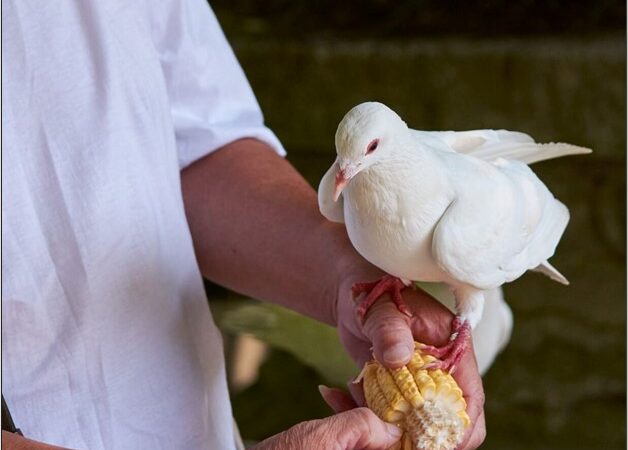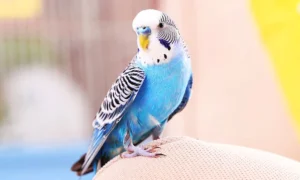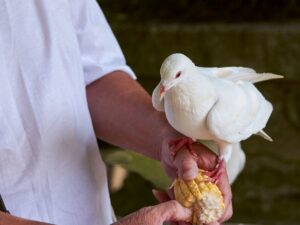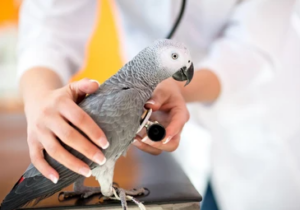Birds as Pets
The world of pet ownership extends far beyond the realm of cats and dogs. Birds, with their vibrant plumage and charming personalities, make for delightful companions that can bring joy and a touch of nature into your home. Here, we explore the rewards and responsibilities of keeping birds as pets, offering insights into their care, companionship, and the unique bond that can develop between humans and these feathered friends.
Choosing the Right Bird
When considering a bird as a pet, it’s essential to choose a species that aligns with your lifestyle and preferences. Different birds have distinct characteristics and care requirements. For example, budgies and cockatiels are popular choices for beginners due to their smaller size and friendly demeanor, while parrots, such as African Greys and Cockatoos, demand more attention and commitment.
Creating the Ideal Living Environment
Birds thrive in environments that mimic their natural habitats. Invest in a spacious and well-ventilated cage that allows your bird to spread its wings and move freely. Equip the cage with appropriate perches, toys, and mentally stimulating activities to keep your feathered friend entertained. Providing a balanced diet rich in seeds, fruits, vegetables, and pellets is crucial for their overall health.
Social Interaction and Bonding
One of the most rewarding aspects of keeping birds as pets is the potential for forming strong bonds with them. Birds are highly social creatures and enjoy interacting with their human caregivers. Spend quality time talking, singing, and playing with your bird to establish trust and create a lasting connection. Some species, like the affectionate Conures or loveable Cockatoos, thrive on physical contact and cuddling.
Communication and Training
Birds are intelligent animals with the capacity to learn commands, tricks, and even mimic human speech. Establishing clear communication through consistent training not only enhances their mental stimulation but also strengthens the bond between you and your feathered companion. Positive reinforcement techniques, such as treats and praise, can be effective in teaching basic commands and fostering good behavior.
Healthcare and Veterinary Visits
Maintaining the well-being of your bird requires regular healthcare. Schedule routine check-ups with an avian veterinarian to monitor your pet’s health and address any potential issues promptly. Be vigilant about signs of illness, including changes in behavior, appetite, or feather condition. Proper grooming, such as nail trimming and wing clipping, may also be necessary to ensure your bird remains healthy and comfortable. See here for more advice on bird health care.
Respecting Their Natural Instincts
Understanding and respecting a bird’s natural instincts is crucial for their overall happiness. For instance, many parrot species are known for their vocalizations and need for mental stimulation. Be prepared for vocal outbursts and provide toys, puzzles, and activities that engage their intellect. Recognizing and accommodating these instincts will contribute to a harmonious and fulfilling relationship.
Keeping birds as pets offers a unique and enriching experience for those willing to invest time, effort, and love into their care. These intelligent and social creatures have the ability to become cherished members of the family, bringing laughter, companionship, and a touch of the wild into your home. By understanding their needs, respecting their instincts, and fostering a strong bond through positive interaction, you can create a happy and fulfilling life for both you and your feathered friend.





